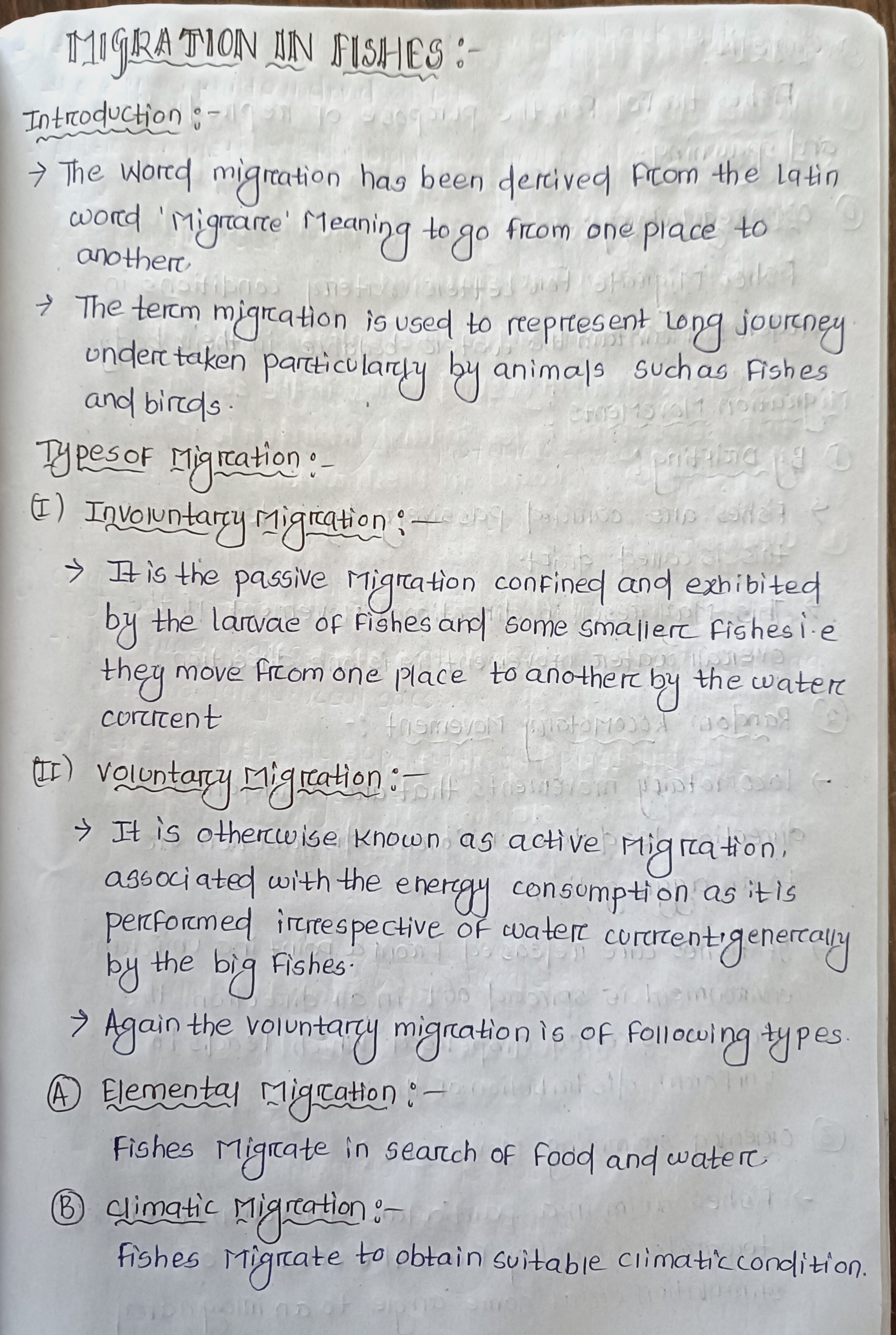What is migration in fishes and what are its types?

Understand the Problem
The question discusses the concept of migration in fishes, covering its definition and types, specifically distinguishing between involuntary and voluntary migration with examples. It aims to provide information on how and why fishes migrate.
Answer
Fish migration occurs for feeding or breeding. Types include anadromous, catadromous, involuntary, and voluntary migration.
Fish migration involves movements from one area to another for reasons like feeding or breeding. Types include anadromous (sea to fresh water) and catadromous (fresh water to sea). Migration can be involuntary (passive, like larvae) or voluntary (active, for food or climate).
Answer for screen readers
Fish migration involves movements from one area to another for reasons like feeding or breeding. Types include anadromous (sea to fresh water) and catadromous (fresh water to sea). Migration can be involuntary (passive, like larvae) or voluntary (active, for food or climate).
More Information
Fish migration helps in accessing different habitats for spawning, feeding, and growth. This movement is crucial for species survival and ecosystem balance.
Tips
A common mistake is confusing anadromous and catadromous migrations; remember anadromous fish move from sea to fresh water, while catadromous go from fresh water to sea.
Sources
- Fish migration - Wikipedia - en.wikipedia.org
- Migration in fishes - Online Biology Notes - onlinebiologynotes.com
AI-generated content may contain errors. Please verify critical information